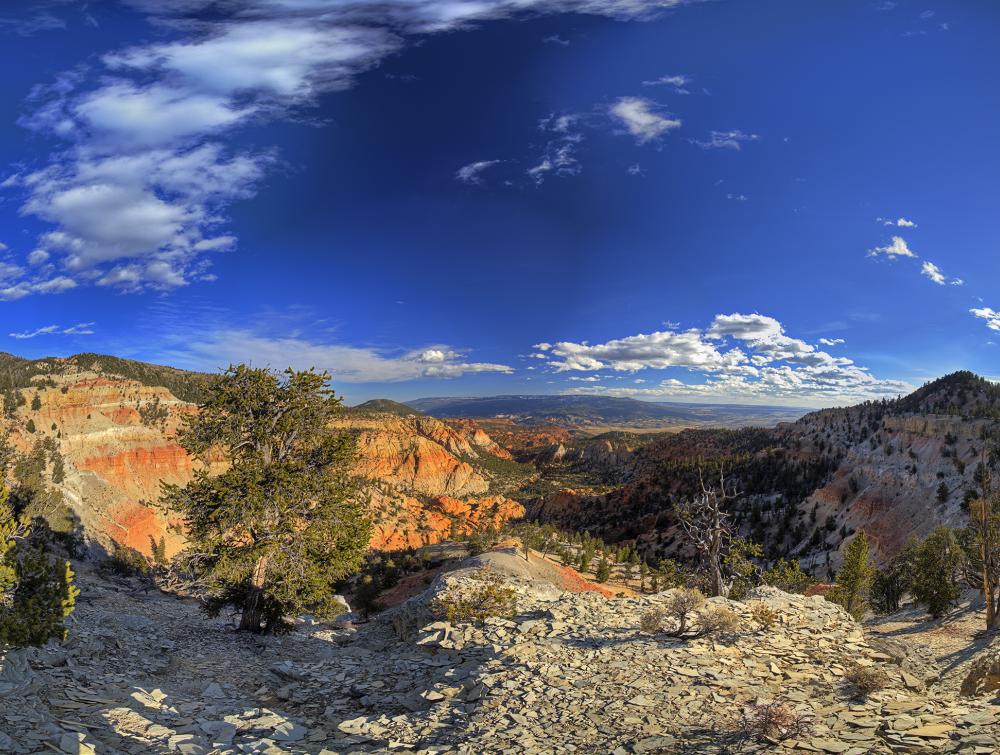Gov. Herbert’s Process to Change Roadless Rule Already Flawed

By Tim D. Peterson
Process lacks public input; recommendations jeopardize public land
New documents reveal the lack of transparency and meaningful public engagement plaguing Gov. Herbert’s efforts to strip protections from millions of acres public lands - and this before the state has even petitioned the U.S. Forest Service, the agency charged with overseeing the health and safety of our lands.
“Bad process usually leads to a bad outcome, and the shocking lack of transparency and public engagement is pointing to a disastrous result for Utah’s forests,” said Paul Spitler of The Wilderness Society. “If changing forest management is truly good public policy, as the state claims, then why are the proposals being developed behind closed doors with no meaningful public review or scientific scrutiny?”
The state is gearing up to change the federal Roadless Rule, which for two decades has protected four million acres of Utah’s untracked backcountry forests. The state’s process has been deeply flawed. The State of Utah Public Lands Policy and Coordination Office has not made any proposed management changes public and, apparently, will not do so until the petition is submitted. A public records request to the office yielded strikingly little information about what, exactly, the state plans to propose for public forests in Utah.
The public lands office also asked county commissioners in each of Utah’s 29 counties to recommend changes to forest management. Public record requests to find out what, in fact, these counties are recommending went months unanswered. Some counties never responded. One county attempted to charge hundreds of dollars to fulfill the request.
The counties that did respond paint a troubling picture: poorly advertised and attended meetings (if they held public meetings at all), and shocking recommendations that would strip protections for forest lands across the state. One county, for example, had exactly one public comment on its proposal—from the Chair of the Republican County Committee. Another proposed—with very little public input—to eliminate all protections for 86 of 95 roadless areas.
"If this is supposed to be a transparent process that involves public input, it's off to a really poor start," said Alex Schmidt, Campaigns Coordinator with Save Our Canyons. "Governor Herbert’s fast-tracked petition is limiting participation from people who have great insight about the forests near their communities. Opening roadless areas to logging and road building will alter habitat, impact drinking water and diminish recreation opportunities, not solve our wildfire issues."
Worse yet, the state is moving forward with a public lands proposal that is not based in science and is misleading the public about what it actually does. The state’s proposal would:
- Worsen wildfire risks in Utah.
- Jeopardize drinking water for millions of Utahns.
- Risk millions of acres of protected public lands that will now be open to commercial logging and other industrial uses.
This process got off on the wrong track. The Wilderness Society and Save our Canyons requests Gov. Herbert get on the right track for the health and safety of all Utahns who love their public lands so dearly. We are requesting that Governor Herbert:
- Provide a more transparent public process that includes an opportunity for public review and comment on a roadless area petition before it is submitted to the Forest Service.
- Establish a scientific advisory team to provide credible, peer-reviewed science to guide forest management.
- Meaningfully engage stakeholders and incorporate stakeholder feedback.
We’re surprised that Gov. Herbert would waste taxpayer dollars and resources asking the federal government to change a rule that has protected Utah’s public lands for two decades. These lands play a vital role in the state’s recreation economy and are gems for every mountain biker, hiker and endurance runner and horseman. We ask Gov. Herbert not to submit a petition to the Forest Service, but first ask his constituents what they want to see happen with their public lands.
Contact:
- Chelsi Moy, Communications Manager, The Wilderness Society, (406) 240-3013, cmoy@tws.org
- Paul Spitler, Director of Wilderness Policy, The Wilderness Society, paul_spitler@tws.org
The Wilderness Society, founded in 1935, is the leading conservation organization working to protect wilderness and inspire Americans to care for our wild places. With more than one million members and supporters, The Wilderness Society has led the effort to permanently protect 109 million acres of wilderness and to ensure sound management of our shared national lands. www.wilderness.org
